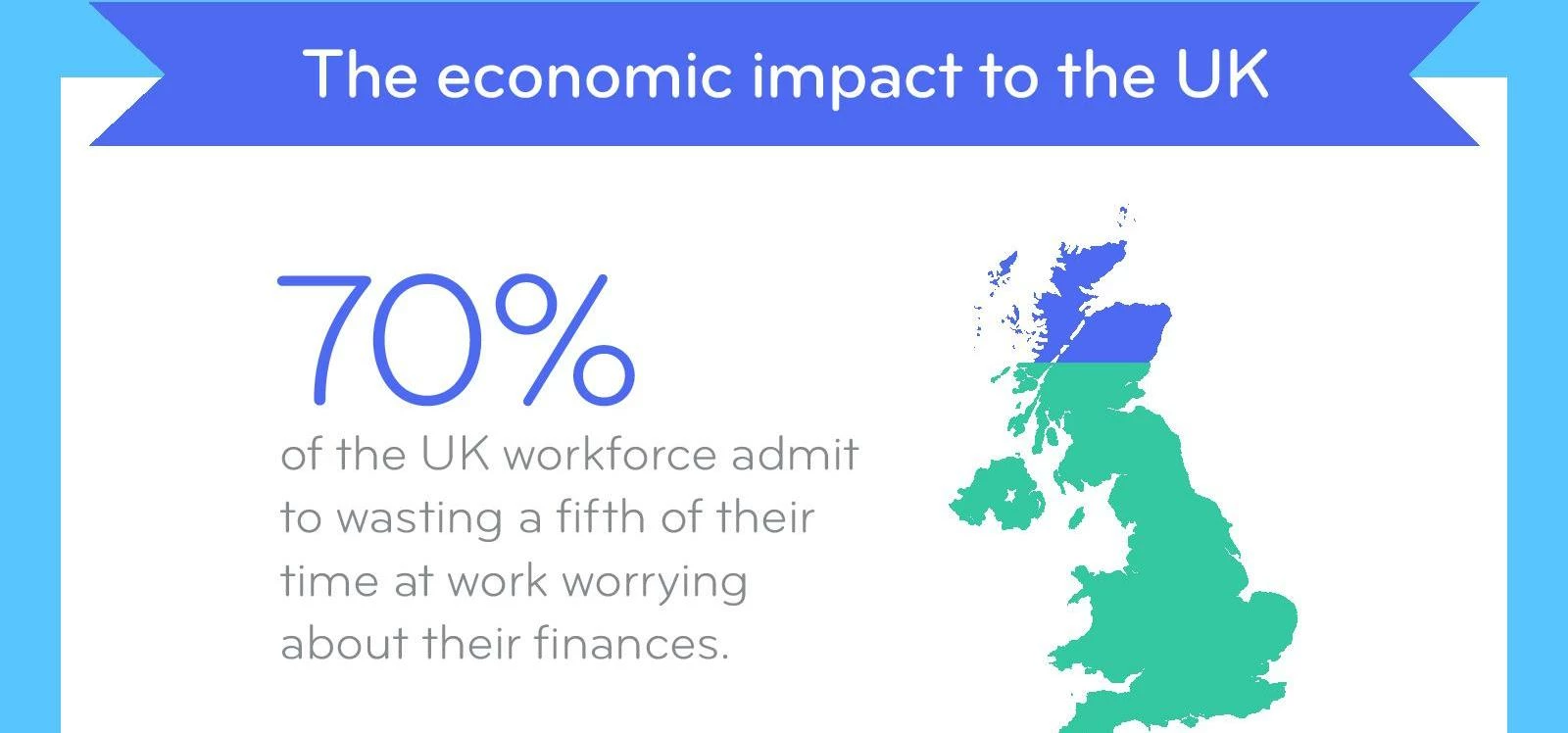
Partner Article
Financial stress responsible for 17.5 million UK working hours lost in the UK
At least 17.5 million working hours are lost per year by the UK workforce as a result of employees taking time off work due to financial stress. These are the findings from Neyber’s “DNA of Financial Wellbeing” report, published today, that researched 10,000 UK workers - the first of its kind looking into the impact employees’ money worries have on UK businesses.
Financial stress is now becoming an increasing cause for concern for employers, with the study revealing 70% of the nation’s workforce admit to wasting a fifth of their time at work worrying about finances, costing the economy £120.7 billion a year.
In addition, the report reveals a perceived discrepancy between employer and employee attitudes towards financial wellbeing; 67% of employees believe their employer doesn’t care about their financial wellness, and only 3% would turn to their manager or HR department about their financial worries. Yet, according to UK employees, half would value financial assistance from their employer.
“More and more workers are looking to their employer for help with financial matters and this will only increase as more millennials enter the workforce; it’s not a problem that’s going to go away,” comments Heidi Allan, Head of Insights and Engagement, at Neyber. “Employers and policy makers must act to address the growing financial wellbeing crisis. Financial education, awareness and understanding are key to making smart, well informed financial decisions.”
Lack of financial wellbeing has a significant impact on the productivity and health of the workforce. More than half (55%) of employees said being under financial pressure affects their behaviour and ability to perform their job in the workplace. 51% say financial pressure affects their relationship with colleagues and 46% say it affects their relationship with their line manager. Poor behaviour and negative relationships can also have significant cost implications for any organisation.
Although financial stress impacts all generations, the situation is most serious among younger workers. The majority of the UK’s workforce will be made up of these younger generations in the next decade, yet 16% of 18-24 year olds have already defaulted on debt repayments, despite poor credit history often hampering future career aspirations. As a result, it’s no wonder that eight in 10 of 18-24 year olds are already suffering adverse effects of these financial worries.
Chris Pond, Vice Chair of the Financial Inclusion Commission, commented “Financial anxiety can be very corrosive. As the DNA of Financial Wellbeing report shows, it impacts individuals, organisations and in turn the UK economy. Employers have an important role to play alongside not for profit advice agencies such as The Money Charity and Citizens Advice and government also needs to give a lead in ensuring people have somewhere trusted to turn for help, so that people of all income brackets have access to fairer finance.”
Charles Cotton of the Chartered Institute of Personnel and Development, states, “Employers can play an active role in supporting their staff’s financial well-being. Today’s businesses need to consider the impact financial worries are having on employee health, happiness and productivity and look at what they can do to help reduce stress levels. Neyber’s report shows that staff would value any support given by their employer.”
Kenny Graves, Head of HR at Police Mutual added, “We tend to always look at the impact of debt through either a personal or national lens. This report is interesting because it explores how personal finance worries impact organisational performance. We think it’s really important to give our people access to benefits which really make a difference to their everyday lives.”
This was posted in Bdaily's Members' News section by Neyber .
Enjoy the read? Get Bdaily delivered.
Sign up to receive our popular morning National email for free.








 Raising the bar to boost North East growth
Raising the bar to boost North East growth
 Navigating the messy middle of business growth
Navigating the messy middle of business growth
 We must make it easier to hire young people
We must make it easier to hire young people
 Why community-based care is key to NHS' future
Why community-based care is key to NHS' future
 Culture, confidence and creativity in the North East
Culture, confidence and creativity in the North East
 Putting in the groundwork to boost skills
Putting in the groundwork to boost skills
 £100,000 milestone drives forward STEM work
£100,000 milestone drives forward STEM work
 Restoring confidence for the economic road ahead
Restoring confidence for the economic road ahead
 Ready to scale? Buy-and-build offers opportunity
Ready to scale? Buy-and-build offers opportunity
 When will our regional economy grow?
When will our regional economy grow?
 Creating a thriving North East construction sector
Creating a thriving North East construction sector
 Why investors are still backing the North East
Why investors are still backing the North East